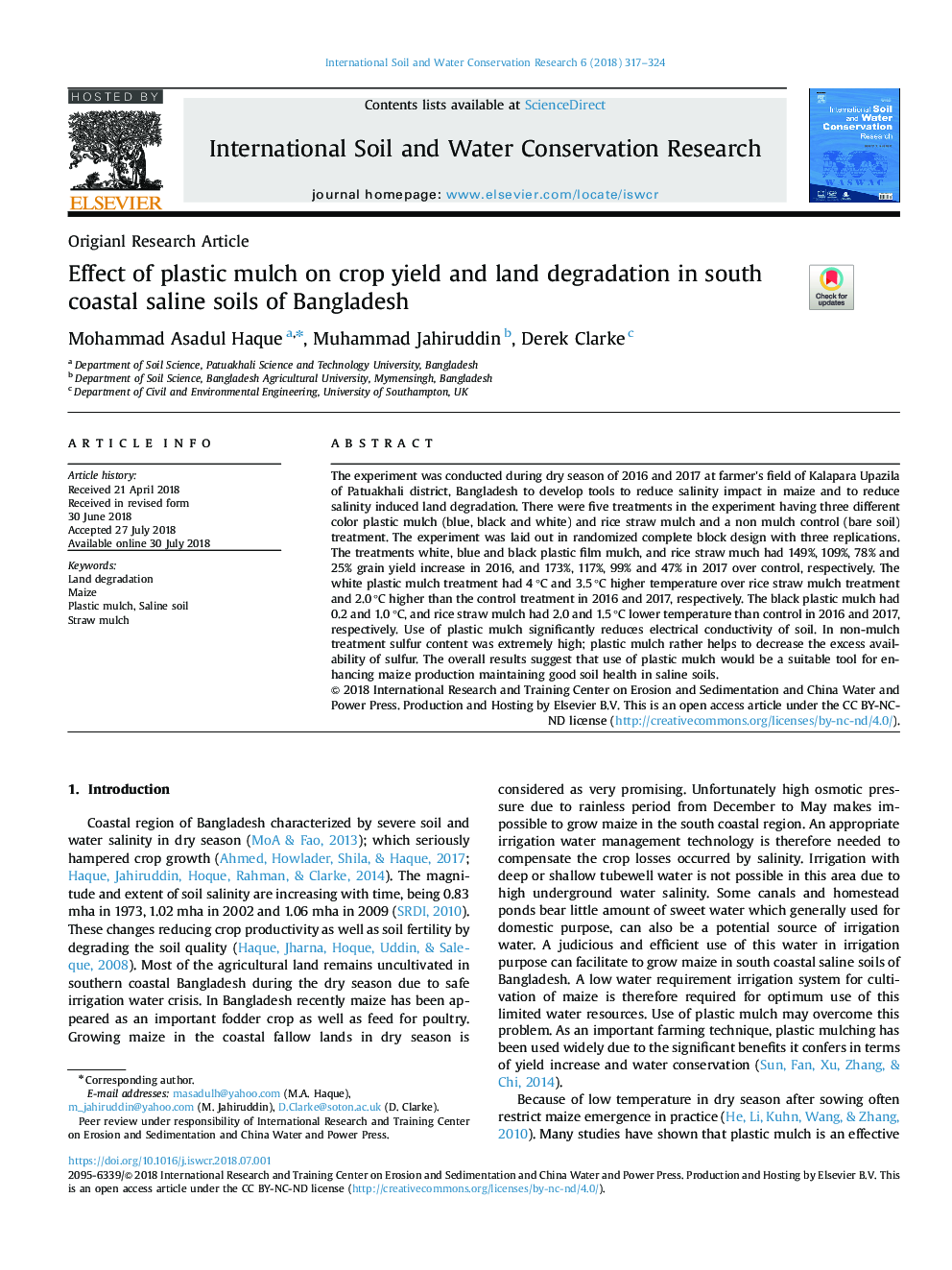| Article ID | Journal | Published Year | Pages | File Type |
|---|---|---|---|---|
| 10223603 | International Soil and Water Conservation Research | 2018 | 8 Pages |
Abstract
The experiment was conducted during dry season of 2016 and 2017 at farmer's field of Kalapara Upazila of Patuakhali district, Bangladesh to develop tools to reduce salinity impact in maize and to reduce salinity induced land degradation. There were five treatments in the experiment having three different color plastic mulch (blue, black and white) and rice straw mulch and a non mulch control (bare soil) treatment. The experiment was laid out in randomized complete block design with three replications. The treatments white, blue and black plastic film mulch, and rice straw much had 149%, 109%, 78% and 25% grain yield increase in 2016, and 173%, 117%, 99% and 47% in 2017 over control, respectively. The white plastic mulch treatment had 4â¯Â°C and 3.5â¯Â°C higher temperature over rice straw mulch treatment and 2.0â¯Â°C higher than the control treatment in 2016 and 2017, respectively. The black plastic mulch had 0.2 and 1.0â¯Â°C, and rice straw mulch had 2.0 and 1.5â¯Â°C lower temperature than control in 2016 and 2017, respectively. Use of plastic mulch significantly reduces electrical conductivity of soil. In non-mulch treatment sulfur content was extremely high; plastic mulch rather helps to decrease the excess availability of sulfur. The overall results suggest that use of plastic mulch would be a suitable tool for enhancing maize production maintaining good soil health in saline soils.
Keywords
Related Topics
Physical Sciences and Engineering
Earth and Planetary Sciences
Earth-Surface Processes
Authors
Mohammad Asadul Haque, Muhammad Jahiruddin, Derek Clarke,
